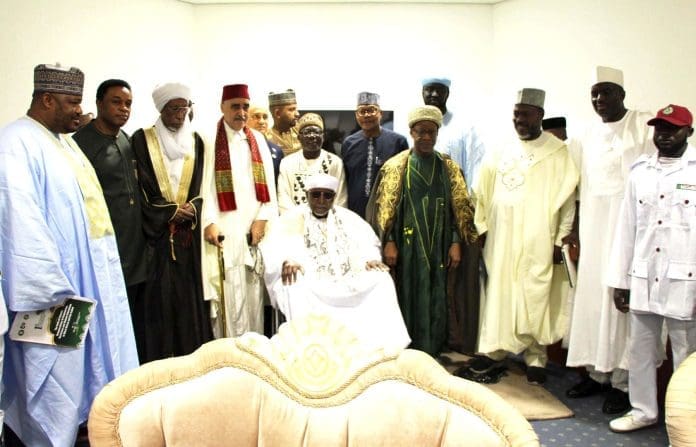The ECOWAS Commission, in collaboration with Jam’iyyatu Ansariddeen Attijaniyya, convened the West African Islamic Conference on Security and Governance at the ECOWAS Parliament in Abuja from Tuesday, 4th to Thursday, 6th November 2025.
This landmark gathering brought together Islamic organizations, government officials, traditional and religious leaders, scholars, policymakers, youth representatives, and regional partners to craft practical strategies for addressing terrorism, violent extremism, and governance challenges across West Africa and the Sahel.
Theme and Focus
The conference centered on the theme:
“The Role of Islamic Organizations in Countering Terrorism and Violent Extremism in West Africa and the Sahel.”
Discussions underscored the urgent need to:
– Strengthen governance and social cohesion
– Protect vulnerable children in traditional Islamic education systems
– Enhance collaboration between state and non-state actors to foster peace and regional stability
Key Remarks
Dr. Mohamed Ibn Chambas, African Union High Representative for *Silencing the Guns* and Chair of the AU High-Level Panel on Sudan, stressed the importance of moral authority and inclusive dialogue:
“Peace cannot be achieved by force, but by moral authority, spiritual guidance, and inclusive engagement. Our religious and traditional leaders, whose influence reaches deep into the hearts of our people, are indispensable partners in countering violence and building peaceful communities.”
Ambassador Abdel-Fatau Musah (Ph.D), ECOWAS Commissioner for Political Affairs, Peace and Security, reaffirmed ECOWAS’ commitment to regional security:
“Fighting terrorism and violent extremism remains our top priority in achieving collective security, which is the foundation for regional stability, prosperity, and deeper integration. This requires a multipronged approach, combining good governance, social cohesion, and strong partnerships with faith-based organizations and communities.”
Addressing Critical Challenges
The conference comes at a pivotal time, as West Africa and the Sahel grapple with escalating threats from terrorist groups, transnational crime, and communal tensions. A particular concern is the exploitation of children in traditional Islamic schools—known as almajirai, talibés, or yan makaranta—who are vulnerable to extremist recruitment. Delegates explored reforms to modernize and regulate these systems while preserving their cultural and educational significance.
Sub-Themes and Deliberations
Over three days, participants examined:
– Community-led resilience initiatives
– Reforming Islamic education systems
– Countering misinformation and extremist propaganda
– Strengthening interfaith dialogue
– Promoting youth empowerment
– Deepening collaboration between Islamic institutions and governments
Strategic Alignment
This initiative reinforces ECOWAS’ Counter-Terrorism Strategy, the Supplementary Protocol on Democracy and Good Governance, the Declaration of Niamey on Education for a Culture of Peace, and the African Union’s Agenda 2063 and Silencing the Guns roadmap. It reflects ECOWAS’ determination to work hand-in-hand with religious actors, communities, and regional partners to advance peace, tolerance, and inclusive development.
Appreciation and Commitment
ECOWAS expressed gratitude to the Government and people of Nigeria for hosting the conference, and to the African Union and regional partners for their collaboration. Supported by the ECOWAS Peace Fund, this initiative underscores ECOWAS’ strategic commitment to dialogue and locally driven solutions, in line with its Vision 2050 goal of a “secure, stable, and prosperous ECOWAS of the People.”
Source: newsghana.com.gh











